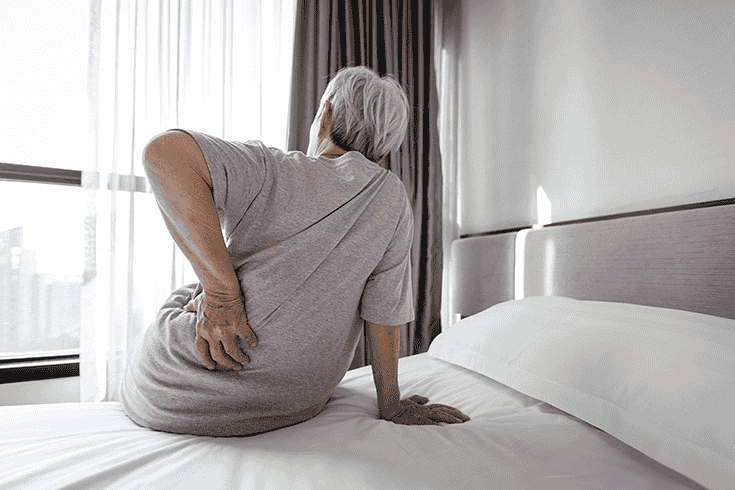Hip discomfort can significantly affect your quality of sleep and daily life. Whether caused by arthritis, bursitis, or general wear and tear, finding effective options for hip pain relief is essential. One of the most impactful but often overlooked solutions is selecting the right mattress. A mattress that provides proper support and pressure relief can make a world of difference for those struggling with hip pain. This guide will help you understand how to choose a mattress that eases hip discomfort, ensuring you wake up feeling refreshed rather than sore.
Why Mattress Choice Matters for Hip Pain
Your hips bear a significant portion of your body weight while sleeping. When the mattress fails to provide adequate support or pressure relief, it can exacerbate hip pain by causing misalignment or increased pressure on sensitive areas. An ideal mattress will balance support and cushioning, relieving pressure points and maintaining spinal alignment to reduce discomfort.
Key Factors to Consider When Choosing a Mattress for Hip Pain
1. Support and Spinal Alignment
Proper support is crucial for hip pain sufferers. When your mattress supports your hips and spine evenly, it helps maintain natural alignment and reduces strain on joints. A mattress that is too soft may cause your hips to sink too deeply, leading to misalignment and increased pain. Conversely, a mattress that is too firm can create pressure points, especially on the hips.
What to look for:
- Medium-firm mattresses are often recommended as they provide balanced support without being too hard or too soft.
- Zoned support mattresses, which offer firmer support in some areas and softer cushioning in others, can be excellent for hip alignment.
2. Pressure Relief
One of the biggest challenges for people with hip pain is pressure buildup on the hip joints during sleep. The right mattress will contour to your body, distributing weight evenly and alleviating stress on sensitive areas.
Materials that excel in pressure relief:
- Memory foam: Known for its ability to conform to the body’s shape, memory foam offers excellent pressure relief and helps reduce hip pain.
- Latex: Natural latex provides good pressure relief with a bit more bounce and responsiveness compared to memory foam.
- Hybrid mattresses: Combining coils with memory foam or latex layers, hybrids can offer a good mix of support and pressure relief.
3. Mattress Firmness
Finding the right firmness level is key. Too soft a mattress can lead to sinking, causing hip misalignment and increased pain. Too firm a mattress may not provide adequate cushioning, leading to pressure buildup.
Recommended firmness:
- Medium to medium-firm mattresses are generally best for hip pain, offering a good balance of support and comfort.
- Side sleepers with hip pain might prefer slightly softer mattresses to cushion the hips and shoulders.
- Back sleepers may benefit from medium-firm mattresses that support the lower back and hips evenly.
4. Sleeping Position
Your preferred sleeping position impacts what mattress will be best for your hip pain.
- Side sleepers: Often experience more pressure on their hips. Look for mattresses with good contouring properties (memory foam or latex) to relieve pressure.
- Back sleepers: Need a mattress that supports the natural curve of the spine and provides firm hip support. Medium-firm options work well.
- Stomach sleepers: Usually require a firmer mattress to prevent hips from sinking too deeply and causing strain.
5. Durability and Motion Isolation
A mattress that loses support over time will stop relieving hip pain effectively. Durable materials like high-density memory foam or natural latex tend to maintain their shape longer. Additionally, if you share your bed, motion isolation can prevent disturbances when your partner moves, allowing for more restful sleep.
Additional Tips for Choosing the Right Mattress
Consider Adjustable Beds
Adjustable beds allow you to elevate your upper body or legs, which can reduce pressure on hips and improve circulation. Pairing an adjustable base with the right mattress type can offer customized relief for hip discomfort.
Test Before You Buy
Many mattress companies offer trial periods. Take advantage of this by testing the mattress for several weeks to see if it truly eases your hip pain.
Use Supportive Bedding Accessories
Mattress toppers made of memory foam or latex can enhance comfort and pressure relief without the need to buy a new mattress immediately.
Options for Hip Pain Relief Beyond the Mattress
While the right mattress is a major factor, remember that hip pain relief often requires a multi-faceted approach, including physical therapy, stretching exercises, weight management, and possibly medical interventions. Consult with a healthcare professional to develop a comprehensive plan tailored to your needs.
Summary: How to Choose a Mattress That Eases Hip Discomfort
To recap, when shopping for a mattress to help with hip pain, keep these points in mind:
- Prioritize medium to medium-firm mattresses for balanced support.
- Opt for memory foam, latex, or hybrid mattresses for superior pressure relief.
- Match your mattress choice to your sleeping position for optimal comfort.
- Consider adjustable beds for personalized positioning options.
- Always test the mattress and utilize trial periods to ensure it’s right for you.
Choosing the right mattress is an investment in your health and well-being. With the right mattress, you can significantly reduce hip discomfort, improve your sleep quality, and wake up feeling more refreshed and pain-free.
If you’re looking to improve your sleep and reduce hip pain, start by evaluating your mattress carefully—your hips will thank you.





Be First to Comment